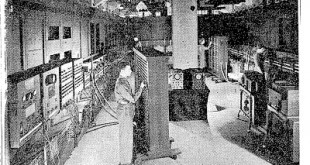My talk in Argentina last week about what to expect after the right wing electoral victory. In Spanish without subtitles.[embedded content] My brother and Revista Circus made it possible.
Read More »Right wing turn in Latin America?
No shame Slow posting during the Thanksgiving break. Just a brief follow up on my recent post on Argentina. By a relative small margin the right wing candidate, Mauricio Macri, won the election. As noted in the previous post the most dangerous result would be an attack on the human rights policies followed by the current government, that have led to jail more than 400 human rights violators (noted that several were acquitted by lack of proofs as it should happen in a civilized society; so...
Read More »Reading Keynes in Buenos Aires
Keynes reading (not the same) New paper just published in the Cambridge Journal of Economics. From the abstract: Keynes had a profound influence on Prebisch in terms of the diagnosis about the main failures of market economies and the need to pursue pro-active and anti-cyclical policies. However, Prebisch was critical of some aspects of Keynes’s General Theory of Employment, Interest and Money, in particular on the theory of interest and the multi- plier. His attitude can be explained by...
Read More »Misconceptions about Heterodox Economics in general and Sraffian in particular
I had discussed before the meaning of heterodox economics. I suggested a definition based on positive contributions (rather than as a critique of the mainstream) and based on concepts rather than schools of thought. In my view the two principles that were central for defining heterodoxy were the Principle of Effective Demand (PED), based on Keynes and Kalecki's ideas, and the idea that distribution is the result of class conflict, which in my view is best expressed in Sraffa's recovery of...
Read More »Crazy proposals about government
[embedded content] Most stories about this were comparisons with Rick Perry forgetting which government agencies he would close (including the NYTimes). But the real story is he wants to close the IRS, the Housing, Energy and Commerce departments (yes he doesn't know how to count to 5). So presumably there will be no income tax, or how in hell is that going to be managed? How is tax collection better managed without an agency dedicated to that? Glad he doesn't want to close the whole...
Read More »Comparative Advantage and Capitalism
[embedded content] From CAPITALISM the documentary by Ilan Ziv. In this short clip a discussion of comparative advantage and its limitations, with Pascal Lamy, Robert Boyer and yours truly (many others in this chapter, including Geoff Hodgson and Ha-Joon Chang).The Mexican secretary of finance that appears in the video is actually NOT talking about the Ricardian model of trade, which at least given its assumptions is logically correct, but about the neoclassical or Heckscher-Ohlin-Samuelson...
Read More »Supply-Siders, Gold Bugs and other Cranks at the Rick Smith Show
[embedded content]
Read More »Five Republican Myths About Taxes
The last Republican debate exposed some of the GOP myths about taxes. Okay, so not all were discussed in the debate per se, but a few were, and the others are pretty much part of the implicit assumptions in the Republican mainstream. A short list must include these ideas:Corporate taxes are high in the US Lower taxes boost investment 50% don't pay taxes, including immigrants A flat tax would simplify the tax code Reducing taxes could still finance big government But it is well-known that...
Read More »Roundtable on the Future of Argentina, 11/25
It will be after the election. So if you're in Buenos Aires... I'll be teaching a couple of classes on financial crisis and inflation for the students of the masters in economic development too.
Read More »First computer at 70
NYTimes, February 1946 ENIAC (Electronic Numerical Integrator and Computer), the first functional computer, was finished in mid-November 1945, just after the end of World War II. Developed for military purposes and financed by the war effort, it is probably the most important technological innovation associated with the state during the war, beating that other project, the atomic bomb. This is the quintessential example of the developmental state or what Mariana Mazzucato has more...
Read More » Naked Keynesianism
Naked Keynesianism




